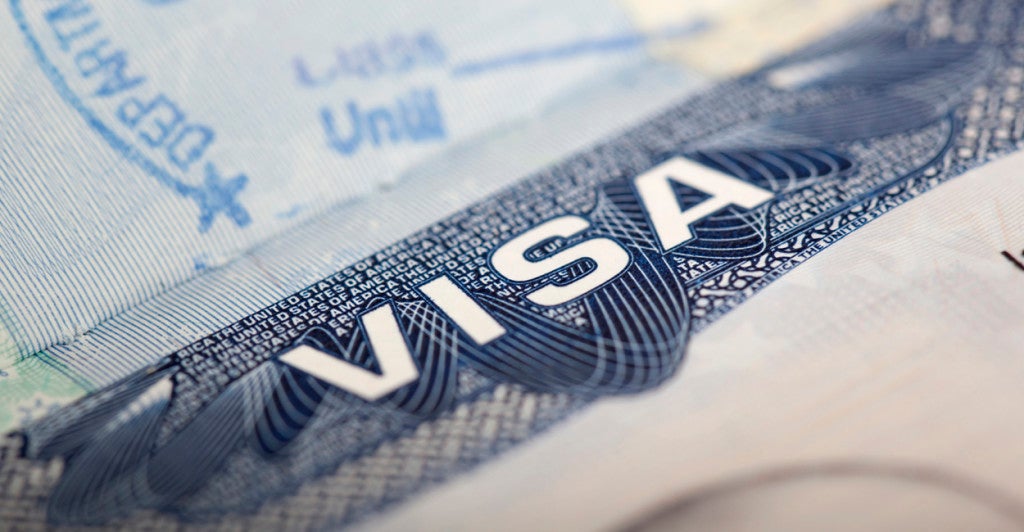Despite the deep erudition of this newspaper’s readers—especially of this column—we suggest everyone take a deep breath over their concerns about the possibility of terrorism here aided and abetted by the visa waiver program.
Everybody: In with the good air; out with the bad. Great!
Now, the current worry is that Europeans who have traveled to Syria, Iraq, etc. to be trained by, or fight?for, ISIS will use their European passports to travel here to attack the U.S. homeland using the program.
After the Paris terror attacks, which were in part carried out by ISIS-addled Europeans, it’s absolutely right for Americans to be asking tough questions about our security.
But some of what you’ve heard about the visa waiver program—that it’s “the soft underbelly of our national security policies” and it’s America’s “Achilles’ heel,” as U.S. Sen. Dianne Feinstein, D-Calif., has put it—is just flat wrong.
As you know, visa waiver is a U.S. program that allows travelers from 38 countries to come to the United States for up to 90 days without first getting a visa at an American embassy or consulate abroad.
To get into the program, a country’s citizenry must be judged to have a low risk of overstaying a visa, likely to return home and have machine-readable biometric passports.
These 38 countries also have to boost their airport security, give U.S. citizens visa-free travel reciprocity, and share intelligence on suspected terrorists, criminals, and lost or stolen passports.
These are critical security measures that too often go unmentioned in discussions about the visa waiver program.
Plus the information shared among visa waiver partners assists the screening of U.S.-bound travelers—from buying a ticket to boarding a plane—against various U.S. government security databases and terrorist watch lists.
These databases are constantly updated.
Upon landing here, biographic/biometric information is checked against additional databases controlled by the Department of Homeland Security and the FBI.
At any point in this process, U.S. officials can stop the bad guys from entering the homeland if they are deemed a security risk or ineligible for travel here.
But, some may wonder, what about people who sneak off to get training from ISIS (or al-Qaeda) without us knowing?
Well, that is certainly a problem, but it’s an intelligence problem, not a visa waiver problem.
If we don’t know that someone is a potential threat, then both the visa waiver program—and the traditional visa process at U.S. diplomatic facilities—will likely let that person come to the United States.
Good intelligence is our first line of defense.
Rather than cut the visa waiver program, Washington should improve and then expand it. We want our counterterror allies to share more information on potential threats even more quickly.
By adding new partners, especially in Europe, where many have left for Middle East hotspots, the program can gather additional threat info, better focusing tight resources on high-risk targets.
This doesn’t mean that international travel—which could move terrorists to our shores—is anything to be taken lightly. Debating, reviewing, and improving all our security programs are important.
We agree that the visa waiver program isn’t perfect—no security program is. Absolute security is simply unattainable. But the program provides big security benefits and is an important part of our layered counterterrorism defense.
Originally published in the Boston Herald.
